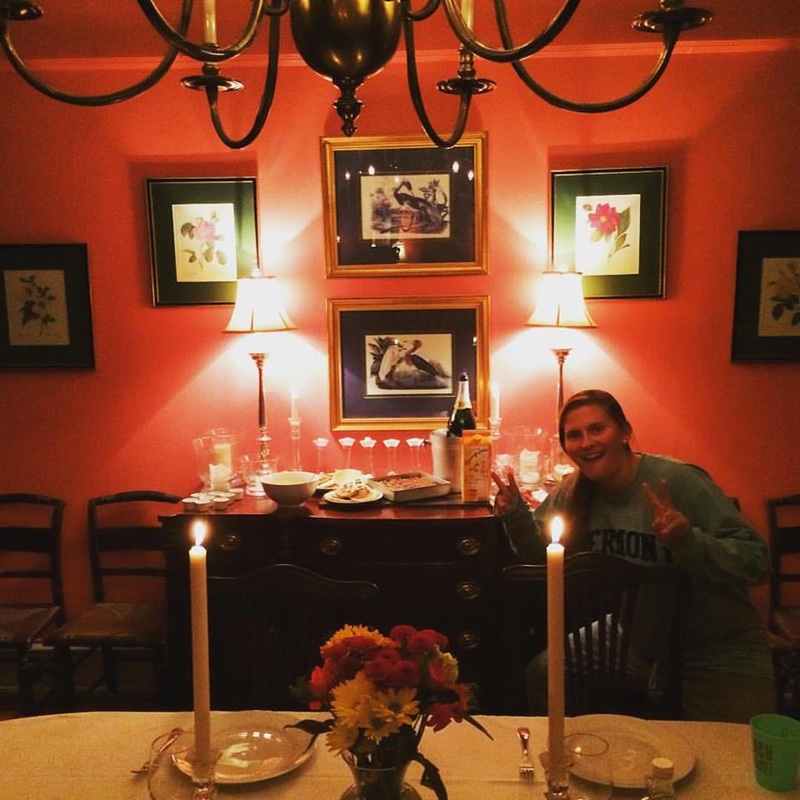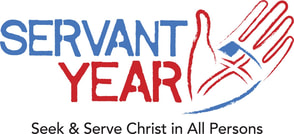|
By Mary Strand
I spent the first couple years of my life in a very small, town in the middle-of-no-where Upstate New York. My days were filled by giggling with my older siblings, jumping in piles of Fall leaves, and swinging from the tire swing on the apple tree in the back yard. My life in my tiny town was all I knew. My small world was suddenly turned upside down when my family moved to Costa Rica just after I turned three years old. I began preschool in a place where I was the only English speaker. I lay with my eyes wide open during naptime listening to the whispers of my classmates in language that I did not know. It was not long before I began to pick up the Spanish language. As I was immersed in the culture, my ears constantly being filled with the lush sounds of the language rolling off my neighbors’ tongues, I learned a new way of communicating with others, a new way of expressing myself, and a new world to dream in. I learned a new language. The first time I attended a mass at St. Mark’s Church, I stood, sat, and knelt with incredulous, wide eyes. My Wesleyan and Mennonite church background had not prepared me, it seemed, for the high Anglo-Catholic style of worship that takes place at St. Mark’s Parish. The procession of robed altar servers and ornately vested priests through the bronze gates at the front of the church and up the tiled steps to the high altar was intimidating, foreign. I had never before attended a church in which it was common place to bow at the name of Jesus, genuflect before the altar, or cross myself—let alone the use of incense, bells, and chanting. I had never before come across words like “chasuble,” “thurifer,” “vexillifer,” or “monstrance” – especially not in every day conversation. Working at St. Mark’s Church, I have often felt out of place. Though we worship the same God, it has felt new, different—at times, inaccessible. The style of worship at St. Mark’s Church has required that I learn a new way of approaching the altar, a new way of relating to the Eucharist, a new way of approaching God. In a way, living and working here at St. Mark’s has required that I learn a new language for engaging with the triune God. Admittedly, much of this was not what I expected to find in my experience here. I did not expect to feel lost as I knelt in the presence of the Almighty God. I did not expect to be working in a place where I was continually confronted with perspectives on faith and service that differed from my own. At times, these differences have seemed to be in conflict. Something deep inside of me has rubbed up against many of the perspectives and practices that I’m surrounded by – there’s friction. But I’m learning the language. I’m learning how to do the everyday tasks of ministry here at St. Mark’s. I now not only know what vestments are, but also know how to set them out properly before a mass. I know when to bow my head and when to bow “profoundly”. I know when to ring the bells during a mass and the right words to say. More importantly, I am in a place where I am continually asked to challenge my own understandings of who God is and what Christian life looks like. As a result, I am learning more about God – experiencing new aspects of Godself. I’m learning a new appreciation for the Eucharist, delving deeper into the theology surrounding it as I am asked to relate to it differently than I had previously. I’m learning that the liturgy used here that has, at times, felt inaccessible, is an incredibly beautiful way to worship and experience God. I will not claim that all of my work here at St. Mark’s has, as a result of these learnings, always felt valuable and worthwhile. It’s a daily struggle to remember that good is and will continue to come of my work here. But what remains clear is that, as I do my best to serve here in this place, it is my responsibility to engage with those whom I find myself surrounded by—regardless of the differences between us. By listening to their stories and being open to taking on their perspective, my personal ideology is humbled, and the outlook I have of myself, of others, of the world, and of God expands. It has only been by stepping outside of my tiny and rather homogenous world, rupturing personal boundaries, that I’ve been able to even begin thinking about serving the needs of others. Mary serves as the ministry resident for children and families at Saint Mark's Church.
0 Comments
 Trish is excited for the weekly community dinner! Trish is excited for the weekly community dinner! By Trish Johnston I’ve been thinking a lot lately about what silence is, how we experience it and what it means in our lives. We live in a world in which silence is often valued. Most of the time, it's not socially acceptable to talk about, for example, which political candidate we support, or our personal faith, or any current event that’s particularly touchy. Often times, we’re scared to be anything but silent about things like our emotions, our need and our wants. By revealing these to other human beings we show our true selves, and are left vulnerable and exposed, a feeling that we as a culture have come to dread. I want to tell you about my housemates. We all live together in a big old house in the middle of center city. But we’re more than just housemates. We are attempting to live in “intentional christian community,” which is often hard to explain to people when they ask what that means. Some days I say, “When we moved in together we wrote a covenant of how we committed to live with one another.” or I say, “We’re more like a family than a group of roommates,” But today, I’m going to explain it to you like this: we’ve made a commitment to never be silent with each other. We’ve promised to never let conflicts fly under the radar. When we have a horrible day, we’ve promised to never answer ‘How Are You?’ with, ‘Good!’. We’ve agreed to little by little, day by day, share our souls, to share what’s being said in our hearts, to speak our own personal truths, at all times. And let me be the first to say, it is HARD. It's often overwhelming to be consistently aware of what is actually going on inside of you instead of glossing over it all like we are accustomed to doing. It can be exhausting to take on the burden of another human being. It can be scary to expose some of the inner parts of your being that haven’t seen the light of day in a very long time. But being loud can also be, in a way, freeing. To be able to leave behind the facade you’ve had for so many years, to let it all go, is liberating. We each were fearfully made by God in his image. God made us to be the exact human she intended us to be. And when we can get back to that, or closer to it, we truly let God in. I’ve found that purposefully and intentionally letting God in, letting her be present as we strip down our walls yields some of the most abundant love I have ever experienced. It’s a love that in the everyday feels ordinary, but when I stop and stare at it for a minute I realize its power. I hear the sound waves it is making in my life. I’m so grateful. For that love. For this year. For the 6 humans I’m sharing it with. For the noise. Trish serves as director of communications for the Seamen's Church Institute. |
Class of
|

 RSS Feed
RSS Feed
